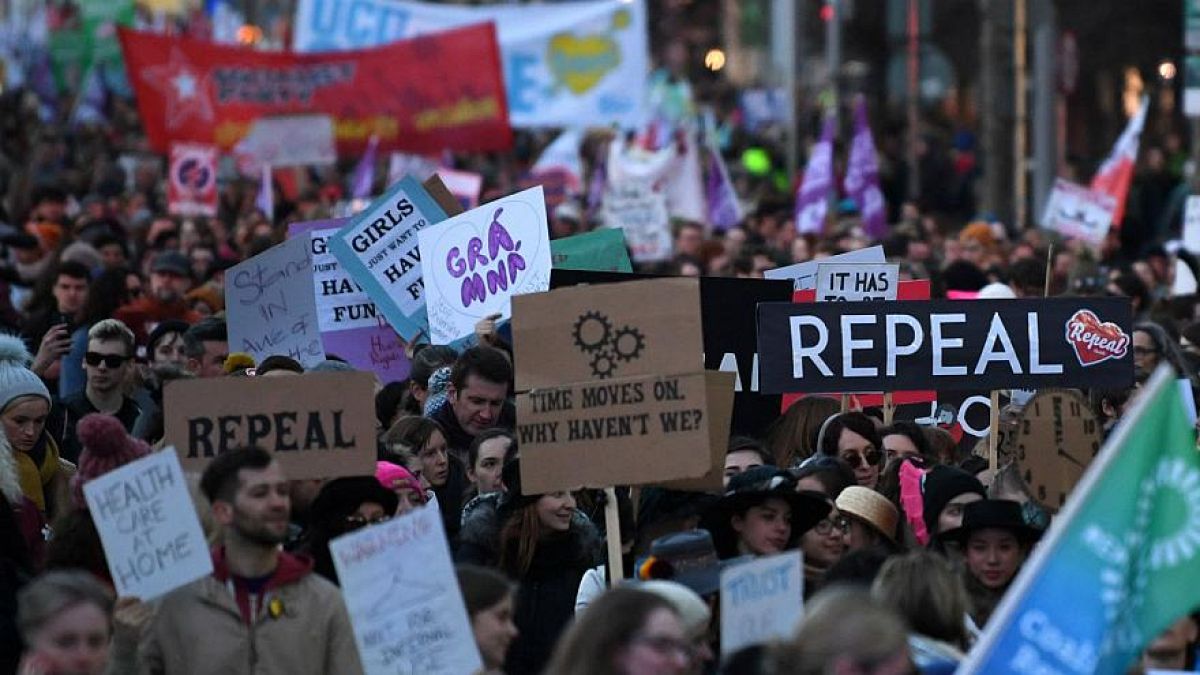Allowing health professionals to deny women abortions based on their personal beliefs runs counter to their ethical duty to do no harm.
By Shannon Kowalski and Susan Wood
For years, Irish women have been forced to travel abroad or seek underground abortion services. But, a historic vote in May delivered a landslide rebuke that rescinded the country’s constitutional provision recognizing the equal rights to life of both a woman and a fetus, opening the door to expanded reproductive autonomy. The euphoria over this victory has barely settled, and already steps are being taken to curb Irish women’s hard-won right. The new front of resistance to women’s rights emerges from those who seek to allow medical professionals to deny women abortion services based on their own religious or moral beliefs. It would be a mistake for Ireland’s legislators to allow such refusals, which ultimately endanger and discriminate against women.
Since 2000, 28 countries have liberalized their abortion laws. In response to this progress, anti-choice advocates and policy makers have mounted a deliberate campaign to undermine women’s access to legal abortion services. A primary tactic has been establishing laws and policies that allow doctors to opt out of fulfilling their professional obligation to provide health care services on the basis of their personal beliefs. The use of these so-called “conscience” claims is on the rise worldwide. Seventy jurisdictions, both national and subnational, currently allow for denial of medical care based on personal grounds. In Italy, 70 percent of gynecologists have registered as so-called “objectors.” Recognizing this dangerous trend, the International Women’s Health Coalition (IWHC) recently released a report documenting the consequences of these refusals of care, along with policy recommendations to ensure that legal abortion is accessible.
When women are denied abortion services, they are forced to bear the cost. They may seek out an alternative provider, which may be difficult and expensive. They may resort to a clandestine, possibly unsafe abortion. Or they may be forced to continue an unwanted or unsafe pregnancy to term. In each scenario, the woman faces the prospect of increased health risks, mental anguish, and economic stress. It is the most marginalized women who are most acutely affected by denials of care.
In a recent case in Spain, for example, a woman whose doctor identified a severe fetal anomaly was denied an abortion on the grounds of “conscience” and forced to make a long trip to Madrid to find a willing provider. When she arrived, she was already bleeding heavily and admitted for an emergency caesarean; the fetus did not survive. To stop the hemorrhaging and save her life, doctors removed her uterus, robbing her of her ability to ever have children.
The 2012 death of Savita Halappanavar gave urgency to Irish women’s longstanding demand for abortion rights. Savita died of septicemia after being denied treatment when she began to miscarry, because Ireland is “a Catholic country.” Although abortion in Ireland has long been legal when a woman’s life is at risk, Savita died because religious objections were given more value than her life. For each of these stories, hundreds more go unheard, silenced by stigma and fear.
In the wake of Ireland’s monumental repeal of the 8th amendment, some doctors and pharmacists have joined Catholic leaders to lobby the government to allow health care professionals to deny services to women on the basis of their personal beliefs. Some have gone as far as to argue that they should not even have an obligation to refer women seeking care to health professionals who will meet their needs. This is a violation of medical ethics and should not be allowed.
While health professionals are entitled to their religious beliefs, they must not prioritize their own personal beliefs over their professional duty to provide legal health care services, when these services are part of that medical specialization or practice. Because refusing to provide care harms those seeking abortions, so-called “conscientious objection” runs counter to the ethical principle of doing no harm that health care professionals pledge to uphold. Ultimately, protecting the rights of patients to access legal health care services without discrimination is of greater importance than protecting the equality of opportunity for people whose personal beliefs prevent them from meeting the obligations of the profession they joined.
Human rights treaties protect individuals’ right to freedom of conscience, thought, and religion, but the exercise of those rights is limited if that would infringe on the rights of others. International human rights bodies and the European Court of Human Rights have been clear that health professionals do not have a right to invoke “conscience” as a reason to deny health care services. Instead, they have ruled that governments are under no obligation to allow for so-called “conscientious objection” in health care. Further, the Court has said that if states decide to allow this practice, they must impose limits that would ensure that patients can access services.
The reality is that Irish people voted overwhelmingly to repeal the 8th, because they recognized that women’s lives and their right to autonomy over their bodies matter. As the Irish government now considers legislation to make abortion legal, they should not undercut women’s rights by allowing the personal beliefs of health care professionals to stand in their way. Human rights bodies and health organizations should use this opportunity to discourage Ireland and other states from enacting policies that allow medical professionals to refuse to provide abortion services. The time to trust women to make decisions about their own bodies is now.
Shannon Kowalski is advocacy and policy director at the International Women’s Health Coalition (IWHC). Susan Wood is Director of Program Learning and Evaluation at IWHC.
Opinions expressed in View articles do not reflect those of euronews.
